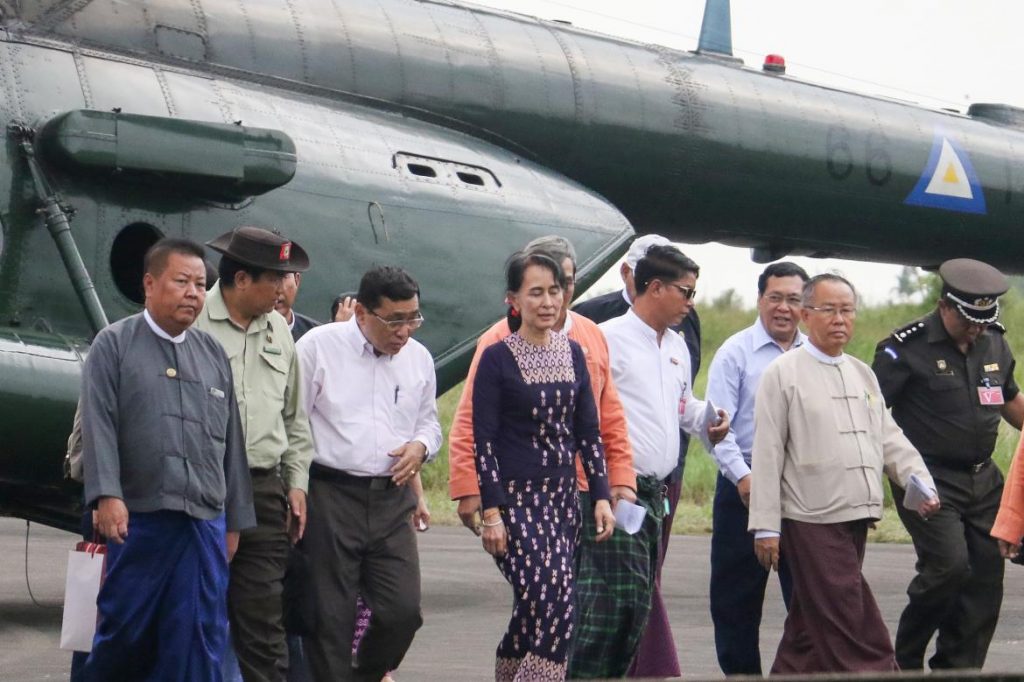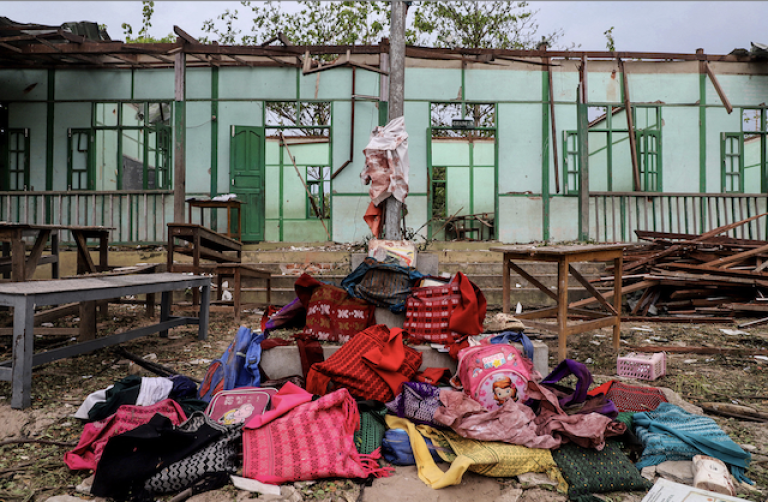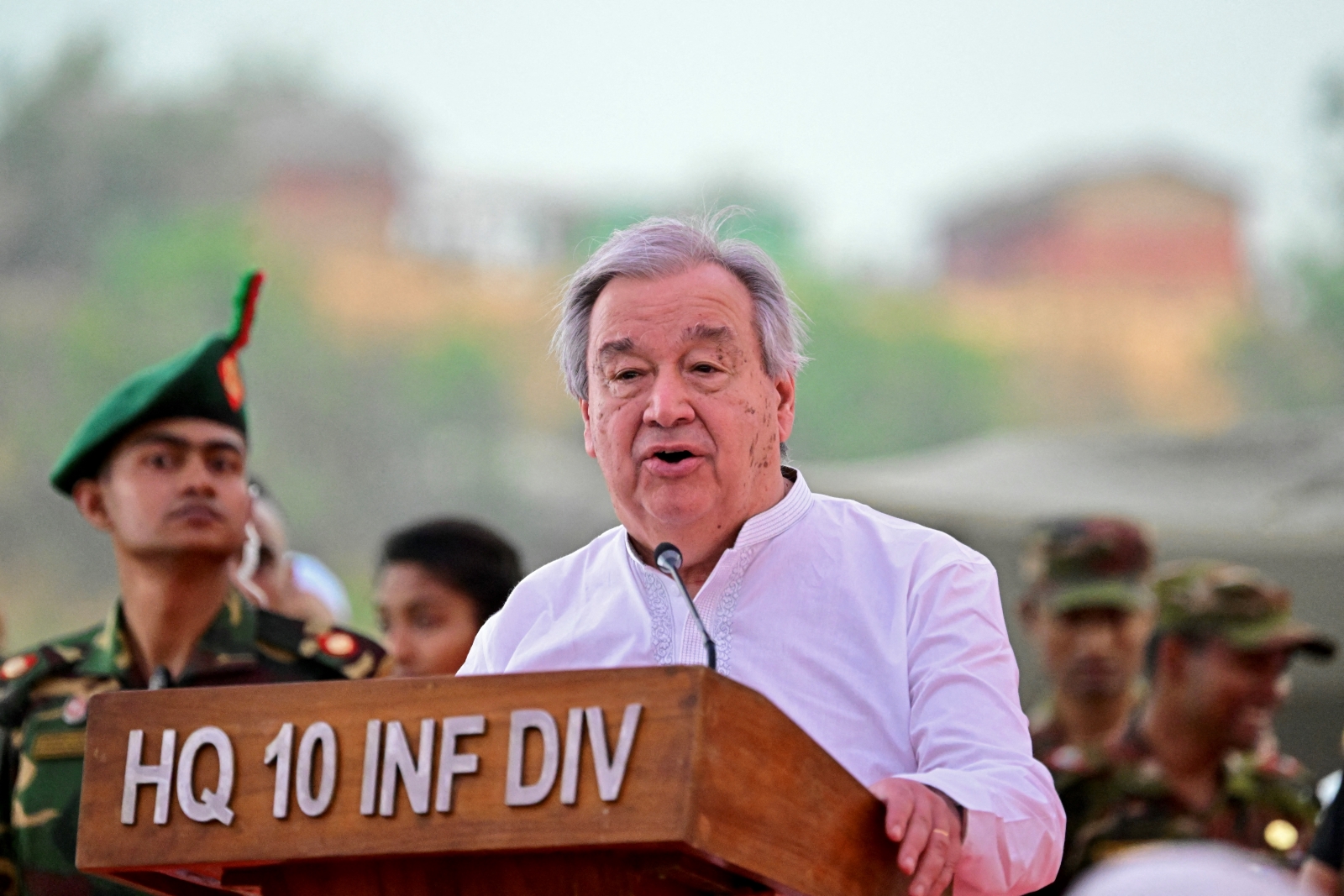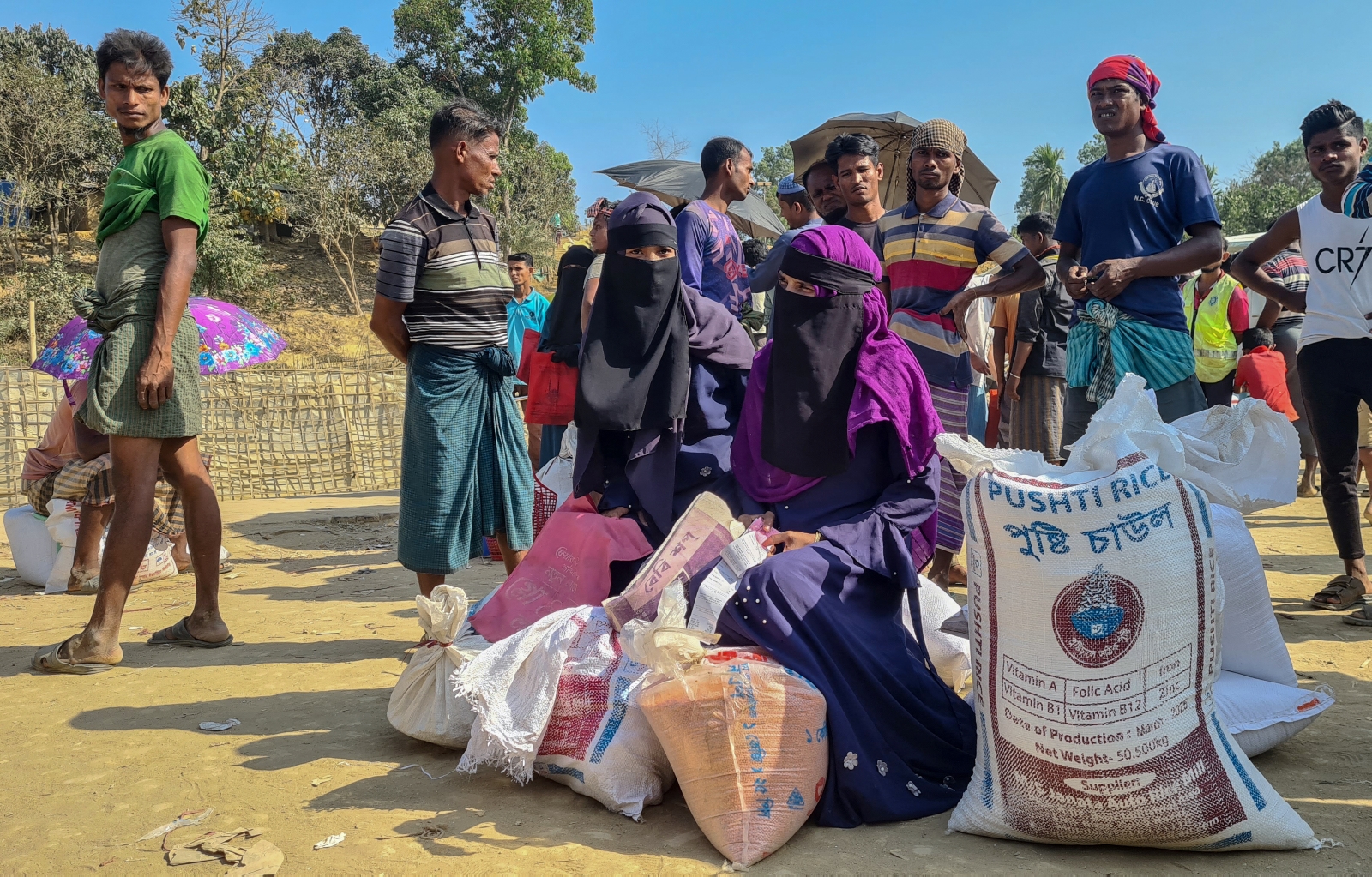By THOMAS KEAN | FRONTIER
The next few months will be an incredibly difficult period for Myanmar, dealing a succession of further blows to the image of the country, its transition and its political leaders, notably State Counsellor Daw Aung San Suu Kyi.
The US State Department will soon release a highly detailed investigation into allegations of human rights abuses in northern Rakhine State. The weight of evidence is such that it may lead to a determination of genocide by the US.
A UN Fact-Finding Mission set up to investigate allegations of rights violations in Rakhine as well as Shan and Kachin states since 2011 has already said in its main findings and recommendations, which were presented to the Human Rights Council on August 27, that there is enough evidence to justify investigating and prosecuting military commanders, including Commander-in-Chief Senior General Min Aung Hlaing, for genocide. It will release its final report in September.
Myanmar will also come under further pressure at the UN General Assembly, where UN special rapporteur on human rights Ms Yanghee Lee will deliver her report. There will be more reports, more investigations, more determinations. In the background is the International Criminal Court’s looming decision on whether it has jurisdiction over the alleged forced deportation of Rohingya Muslims from Rakhine State.
Support more independent journalism like this. Sign up to be a Frontier member.
The civilian National League for Democracy government has little control over the Tatmadaw. What happened in the past also cannot be undone.
But the government can decide how to respond to these allegations, and to the considerable challenge of creating a better future for all people in northern Rakhine State.
Ahead of the first anniversary of the August 25 attacks by the Arakan Rohingya Salvation Army, Frontier interviewed more than a dozen foreign policy experts, political analysts and government officials from a range of countries, including Myanmar.
There was a consensus that the Myanmar government’s response to this complex crisis has not served the country well. The effect domestically has been to unleash a wave of aggrieved nationalism that has hardened attitudes, making reconciliation much more difficult to envision, let alone achieve in practice.
Internationally, the government’s response has damaged many of its key relationships. Myanmar has moved closer to China at a time when the need for balanced foreign relations is more acute than ever.
Paradoxically Aung San Suu Kyi’s handling of the crisis has also hurt her relationship with the military, because it has only fuelled efforts for justice, disengagement and punitive measures like sanctions. At the same time, the military has been empowered and emboldened in the domestic sphere to the detriment of the civilian administration.
It is time for a fresh approach: one that is sincere, inclusive and transparent. Even seemingly small changes in tone and message could make a significant difference to Myanmar’s relationships and how it is perceived around the world, as well as prospects for repatriation and genuine reconciliation in Rakhine State.
This is not about narrow interests: what is best for the Rohingya or Rakhine, or for the NLD or military. This is about Myanmar’s national interest. If the government continues on the present path, it will only further entrench its growing isolation and make genuine progress in Rakhine a more remote prospect.
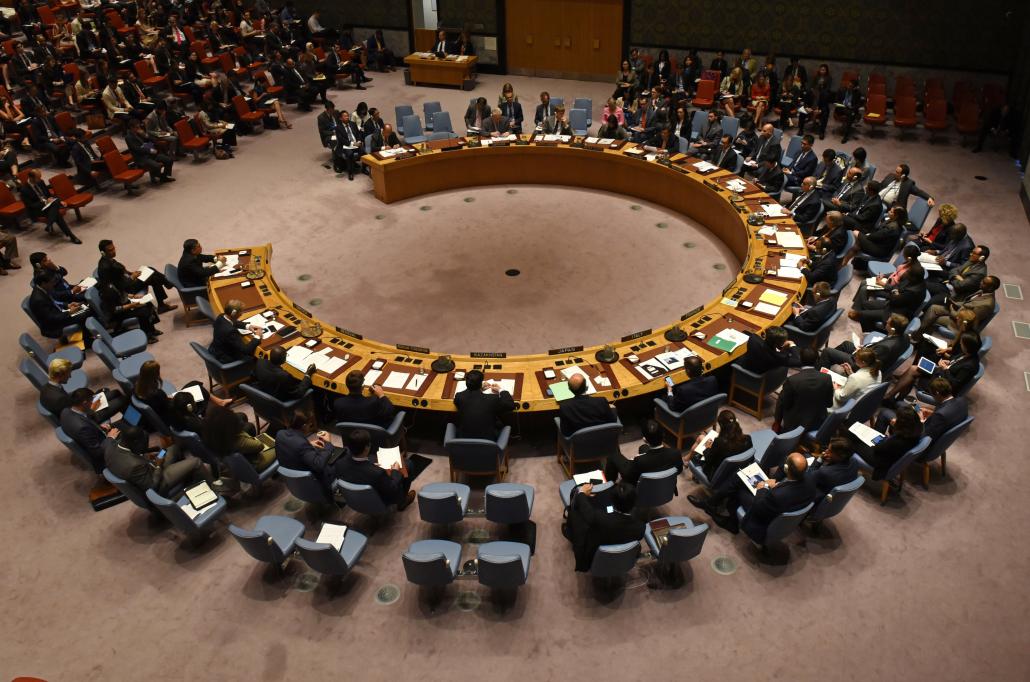
The United Nations Security Council holds a meeting on violence in Rakhine State on September 28, 2017. (AFP)
A significant amount of damage has already been done. While much of it was inevitable, some could have been avoided.
In particular, the government’s twin strategies of denial and delay have been disastrous. It has been reactive – waiting and then responding belatedly to pressure – rather than proactive. It has looked to the past – in particular, previous refugee crises – for answers and solutions, without recognising how much Rakhine State, Myanmar and the world have changed.
Accountability for what transpired in Rakhine State will be extremely difficult to achieve in a Myanmar context. But in denying outright the allegations of abuses and refusing to investigate them for nearly a year, the government has been forced repeatedly to adopt irrational and untenable positions. Its attempts to respond to negative international media coverage with its own propaganda have further damaged its credibility.
Trying to avoid responsibility has come at a significant cost. Human rights groups and other organisations have stepped into the vacuum, conducting their own thorough investigations. The government has ceded the ground and lost control over the process. But in the end, under pressure from the United Nations Security Council, it has still been forced to form its own commission of inquiry.
Coming at this juncture, expectations for what this commission can achieve – or is even intended to achieve – are low. Had it been established at Myanmar’s initiative and in the immediate aftermath, these expectations may have been different.
But the timing of the government’s actions over the past year has created the impression that each step is designed only to ease pressure ahead of key United Nations meetings. It reinforces the notion that the government is not sincere.
The memorandum of understanding signed with two UN agencies is another example. If it were indeed a breakthrough, UN staff would not have to wait months for travel authorisation. It will not be greatly surprising if, at the moment the UN is about to walk away from the deal, the authorisation comes through.
These are classic steps out of the military junta playbook. Relent a little, relieve the pressure, then slam the door.
It should also not be surprising then that those in charge of foreign policy alongside Aung San Suu Kyi are veterans of that era. Influential ministers U Kyaw Tint Swe, U Thaung Tun and U Kyaw Tin all cut their teeth in the Ministry of Foreign Affairs defending Than Shwe’s government from allegations of rights abuses and political oppression.
It is a flawed approach. It prioritises short-term results over long-term progress in Rakhine State, it damages prospects for international cooperation, and it cedes the initiative to other actors.
It is also not compatible with the context. The abuses under military rule could be more easily defended on the grounds they were internal matters, whereas the Rakhine crisis has clear international implications.
The push for accountability is not going to blow over any time soon. The US State Department report is designed to preserve evidence. In all likelihood, the issue will hang over Myanmar for decades, influencing its economic and political relationships.
Already the damage to Myanmar’s reputation is having a material affect. Foreign investment has slowed and important economic sectors like tourism, which creates a large number of jobs, have been hard hit.
But there is an opportunity for Myanmar to change the narrative and begin repairing its image and relationships. An important step on the government’s part would be to acknowledge that security forces and vigilantes were almost certainly involved in much of the violence in northern Rakhine State. It would go a long way towards rebuilding trust and confidence.
For all the criticism of Myanmar, the international response so far has been restrained – particularly considering the seriousness of the allegations, the volume of evidence and the scale of the refugee crisis. Sanctions have been limited and symbolic in nature. There has been little real change in foreign policy towards Myanmar.
This is born out of a lack of leverage, but also a desire to stop Myanmar becoming dependent on China and an appreciation of the very serious challenges the government faces. The reality is that nobody wants the NLD government to fail; on the contrary, there is a keen desire to assist.

Displaced Rohingya refugees from Rakhine State walk near the border with Bangladesh on September 4, 2017. (AFP)
The obvious basis for this cooperation is the recommendations of the Advisory Commission on Rakhine State. Led by the late former UN secretary general Mr Kofi Annan, the commission delivered its final report just hours before ARSA launched its attacks last August.
There is a broad consensus that the recommendations offer the best pathway forward – indeed, it’s one of the few things that Myanmar and its partners agree on. To date though the international community has been mostly locked out of the process, which has been highly opaque. Aung San Suu Kyi’s recent claim that 81 of 88 recommendations have already been implemented has raised eyebrows, given that many are long-term in nature.
And the point that nearly everyone interviewed for this piece agreed on was that, at its core, citizenship is the answer. That is one of the recommendations that has not been taken up.
Going it alone is not the solution for Myanmar. The government needs to come up with a coherent strategy to engage with all international stakeholders. This doesn’t mean giving up sovereignty; it can remain in control of the process. But a clear plan for implementation, with timelines, costings and responsibilities, would find strong international support.
But the most significant change required is in the way the Rakhine issue has been framed domestically.
One of the biggest failings of the past 12 months has been the inability of Myanmar’s leaders to convince the country that there is an alternative to hatred, exclusion and violence. No one has stood up to the hate speech and incitement, the suggestions that all refugees are terrorist sympathisers and illegal immigrants. Now that those sentiments have been unleashed, they will be incredibly difficult to contain. In this toxic environment, it would be almost impossible for any political leader to challenge the status quo.
Except, that is, for Aung San Suu Kyi. For all the knocks she has taken over the past year, her stature and authority are such that she is still the only politician who can shape the views of vast numbers of people.
She can begin the difficult conversation that needs to take place around citizenship and identity, and what it means to be a citizen of Myanmar. This is going to take time, but beginning the process would be an important signal to everyone that a resolution over the long term is possible.
To date, though, when Aung San Suu Kyi has spoken publicly about the crisis she has appeared dispassionate and disconnected – as though she was discussing an administrative challenge rather than a human tragedy. She has shown seemingly little empathy for the suffering that all communities in Rakhine State have endured. These cues have not been missed, either at home or abroad.
When Aung San Suu Kyi took the stage for her Singapore lecture on August 21, the time was right to signal a new approach.
What she delivered was essentially more of the same. That Myanmar was the victim of terrorism. That it was committed to repatriation and the implementation of the Annan commission’s recommendations.
The intention may indeed be genuine. But relying on the methods of the past 12 months is only likely to further damage Myanmar’s national interests.


